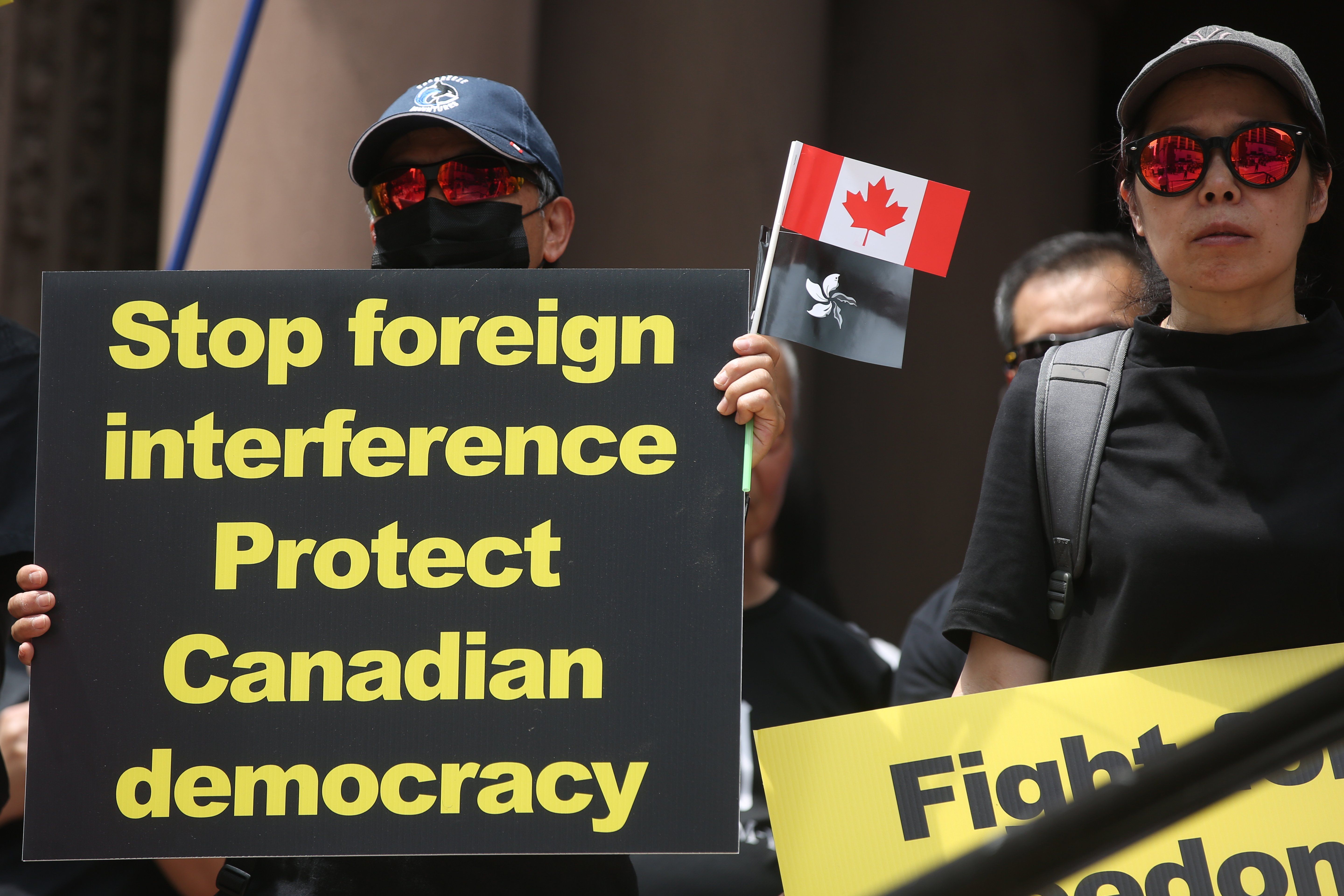October 26, 2023
The Canadian government is accusing China of government-supported “spamouflage” — a cute name for a not-so-cute social campaign of disinformation and harassment. The foreign ministry says the effort was supported by a network of inorganic accounts posting deepfake videos, rumors, and attacks aimed at suppressing political engagement by diaspora communities and hampering members of Parliament from doing their jobs. China denied the accusation, calling it a “blatant smear campaign.”
Just last weekend, leaders of the Five Eyes intelligence network took to “60 Minutes,” warning that China was stealing technology secrets and suggesting that it was ramping up espionage and hacking efforts overseas.
The alleged spamouflage operation notably comes amid Canada’s inquiry into alleged foreign interference with its domestic affairs, which includes a look at Beijing. Relations between the two countries have been frosty this year thanks to accusations of Chinese meddling in Canada’s elections.
But Canada’s power imbalance with China over its disinformation campaigns is similar to its tense relationship with India following the assassination of Canadian citizen Hardeep Singh Nijjar. Unilateral retaliation would be purely symbolic and of limited value, and the state of play between China and the US precludes Ottawa from calling on its closest ally for support.
Chinese and US diplomats have been working for months to stabilize relations and set up a summit between President Xi Jinping and President Joe Biden in San Francisco in November — putting Canada’s concerns on ice for the time being.
More For You
People in support of former South Korean President Yoon Suk Yeol rally near Seoul Central District Court in Seoul on Feb. 19, 2026. The court sentenced him to life imprisonment the same day for leading an insurrection with his short-lived declaration of martial law in December 2024.
Kyodo
65: The age of former South Korean President Yoon Suk Yeol, who was sentenced to life in prison on Thursday after being found guilty of plotting an insurrection when he declared martial law in 2024.
Most Popular
In an era when geopolitics can feel overwhelming and remote, sometimes the best messengers are made of felt and foam.
Hungarian Prime Minister Viktor Orban holds an international press conference in Budapest, Hungary, January 5, 2026.
REUTERS/Bernadett Szabo/File Photo
The Hungarian election is off to the races, and nationalist Prime Minister Viktor Orbán is facing his most serious challenger in 16 years.
How people in G7 and BRICS countries think their policies will effect future generations.
Eileen Zhang
Does skepticism rule the day in politics? Public opinion data collected as part of the Munich Security Conference’s annual report found that large shares of respondents in G7 and several BRICS countries believed their governments’ policies would leave future generations worse off.
© 2025 GZERO Media. All Rights Reserved | A Eurasia Group media company.
